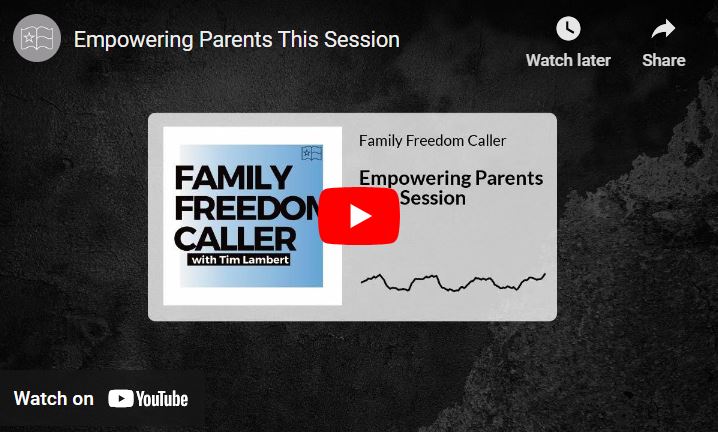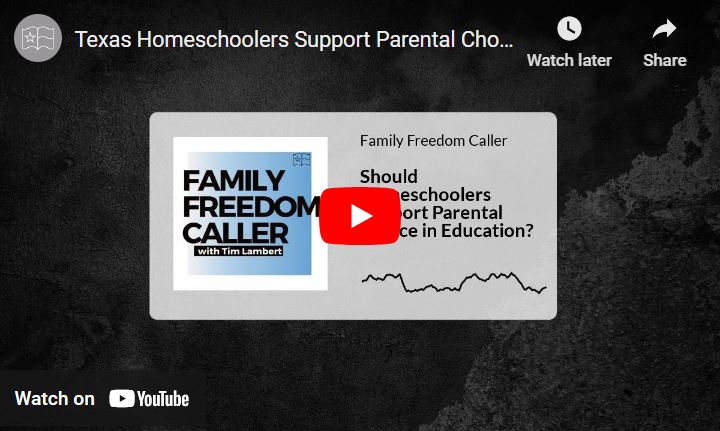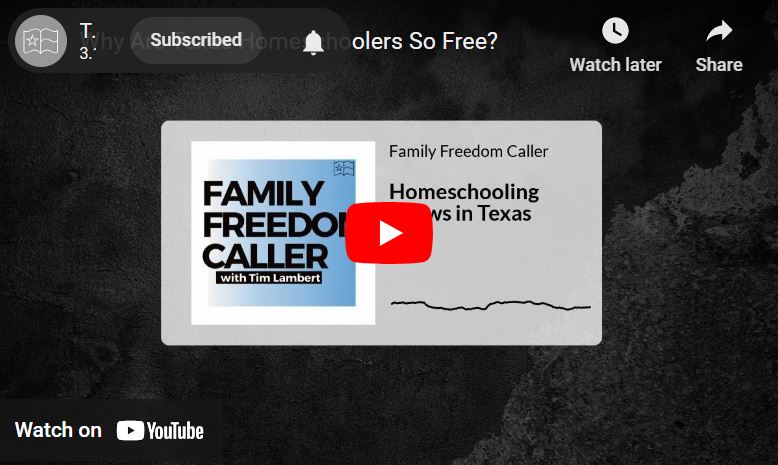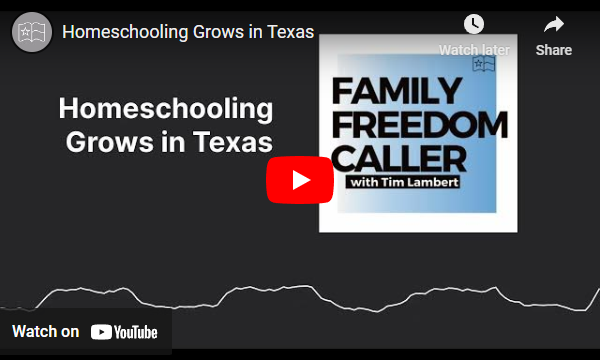Over the last 20 years home schooling in Texas has flourished; however, the details of what it actually means to be a home school in Texas remain surprisingly unclear to many.
Is a home school a private school?
Recent bills considered at both the state and federal level have sparked the question of whether home schools are considered private schools under Texas law. Many people fervently believe that passing bills that differentiate between home schools and private schools will cause more regulation. However, while Texas law treats homeschools as a type of private school, it regulates them entirely differently from other types of private school, and it always has.
Texas law has clearly distinguished between the two in the education code since 2007. The Leeper v. Arlington ISD Supreme Court decision also defined homeschools to be included in the definition of “private school” for the purposes of the compulsory attendance statute. Leeper leaves home schools as a distinct subset of private schools.
Why does compulsory attendance matter?
In the late 1980s when attorney and home school dad Shelby Sharpe filed a class action lawsuit against the Texas Education Agency (TEA), the district court ruled in favor of Sharpe’s claim to the right to home school. The appeal of the lower court’s decision to the Texas Supreme Court became known as the Leeper v. Arlington ISD case in the mid 1990s. This case involved the TEA changing its policy towards home schools, and arguing to the court that home schools should be subject to compulsory attendance because they should not qualify for the private school exemption under the statute.
The TEA argued that home schoolers were not exempt from the compulsory attendance statute, which made them the object of prosecution for truancy by local school districts. The lower court’s ruling meant that home school students were in attendance in a private school for the purposes of the compulsory attendance laws. When all nine Texas Supreme Court Justices ruled in favor of home schooling, they clarified that Texas law clearly exempted home schools from compulsory attendance as a type of private school.
How did the Leeper decision define home schooling?
According to Shelby Sharpe, “The Leeper opinion did not define a home school as a private school. The court interpreted the language in the code of a private school to include a home school.”
The Leeper decision did not change the definition of home schooling or equate home schools to all other private schools unilaterally. The language compares home schools to private schools specifically for the sake of exemption from the compulsory attendance laws.
Should home schools be considered the same as other private schools?
In 1997, the Home School Legal Defense Association (HSLDA) filed a federal lawsuit in San Antonio to force the federal government to acknowledge that a home school should be distinguished from a traditional private school with regard to the Federal “Gun-Free School Zone Act.” It was explicitly because of the distinction that has always existed between home schools and other private schools that the federal government eventually acknowledged the clear difference. Refusing to recognize the difference between traditional private schools and home schools in that situation would have resulted in the loss of Second Amendment rights for home schoolers, which was obviously not the intent of Congress. In the same way, it is necessary at times to recognize the distinction between home schools and all other types of private schools.
Will legislation referencing home schooling jeopardize freedom?
Misunderstandings of the legal classification of home schools have caused some home schoolers to oppose irrelevant or even beneficial legislation on the belief that it jeopardizes the freedoms Texas families enjoy. Direct references to home schools, or definitions consistent with the provisions of the Leeper decision, have no effect on the protections that home schoolers have in Texas.
Since 1986, THSC has fought to Keep Texas Families Free. THSC continues to actively and vigilantly protect Texas families from legislation that endangers the right to home school or encroaches on the freedoms that home schoolers currently enjoy. Do you support these freedoms? Please consider a gift to show your support, or join THSC today!
Over the last 20 years home schooling in Texas has flourished; however, the details of what it actually means to be a home school in Texas remain surprisingly unclear to many.
Is a home school a private school?
Recent bills considered at both the state and federal level have sparked the question of whether home schools are considered private schools under Texas law. Many people fervently believe that passing bills that differentiate between home schools and private schools will cause more regulation. However, while Texas law treats homeschools as a type of private school, it regulates them entirely differently from other types of private school, and it always has.
Texas law has clearly distinguished between the two in the education code since 2007. The Leeper v. Arlington ISD Supreme Court decision also defined homeschools to be included in the definition of “private school” for the purposes of the compulsory attendance statute. Leeper leaves home schools as a distinct subset of private schools.
Why does compulsory attendance matter?
In the late 1980s when attorney and home school dad Shelby Sharpe filed a class action lawsuit against the Texas Education Agency (TEA), the district court ruled in favor of Sharpe’s claim to the right to home school. The appeal of the lower court’s decision to the Texas Supreme Court became known as the Leeper v. Arlington ISD case in the mid 1990s. This case involved the TEA changing its policy towards home schools, and arguing to the court that home schools should be subject to compulsory attendance because they should not qualify for the private school exemption under the statute.
The TEA argued that home schoolers were not exempt from the compulsory attendance statute, which made them the object of prosecution for truancy by local school districts. The lower court’s ruling meant that home school students were in attendance in a private school for the purposes of the compulsory attendance laws. When all nine Texas Supreme Court Justices ruled in favor of home schooling, they clarified that Texas law clearly exempted home schools from compulsory attendance as a type of private school.
How did the Leeper decision define home schooling?
According to Shelby Sharpe, “The Leeper opinion did not define a home school as a private school. The court interpreted the language in the code of a private school to include a home school.”
The Leeper decision did not change the definition of home schooling or equate home schools to all other private schools unilaterally. The language compares home schools to private schools specifically for the sake of exemption from the compulsory attendance laws.
Should home schools be considered the same as other private schools?
In 1997, the Home School Legal Defense Association (HSLDA) filed a federal lawsuit in San Antonio to force the federal government to acknowledge that a home school should be distinguished from a traditional private school with regard to the Federal “Gun-Free School Zone Act.” It was explicitly because of the distinction that has always existed between home schools and other private schools that the federal government eventually acknowledged the clear difference. Refusing to recognize the difference between traditional private schools and home schools in that situation would have resulted in the loss of Second Amendment rights for home schoolers, which was obviously not the intent of Congress. In the same way, it is necessary at times to recognize the distinction between home schools and all other types of private schools.
Will legislation referencing home schooling jeopardize freedom?
Misunderstandings of the legal classification of home schools have caused some home schoolers to oppose irrelevant or even beneficial legislation on the belief that it jeopardizes the freedoms Texas families enjoy. Direct references to home schools, or definitions consistent with the provisions of the Leeper decision, have no effect on the protections that home schoolers have in Texas.
Since 1986, THSC has fought to Keep Texas Families Free. THSC continues to actively and vigilantly protect Texas families from legislation that endangers the right to home school or encroaches on the freedoms that home schoolers currently enjoy. Do you support these freedoms? Please consider a gift to show your support, or join THSC today!











